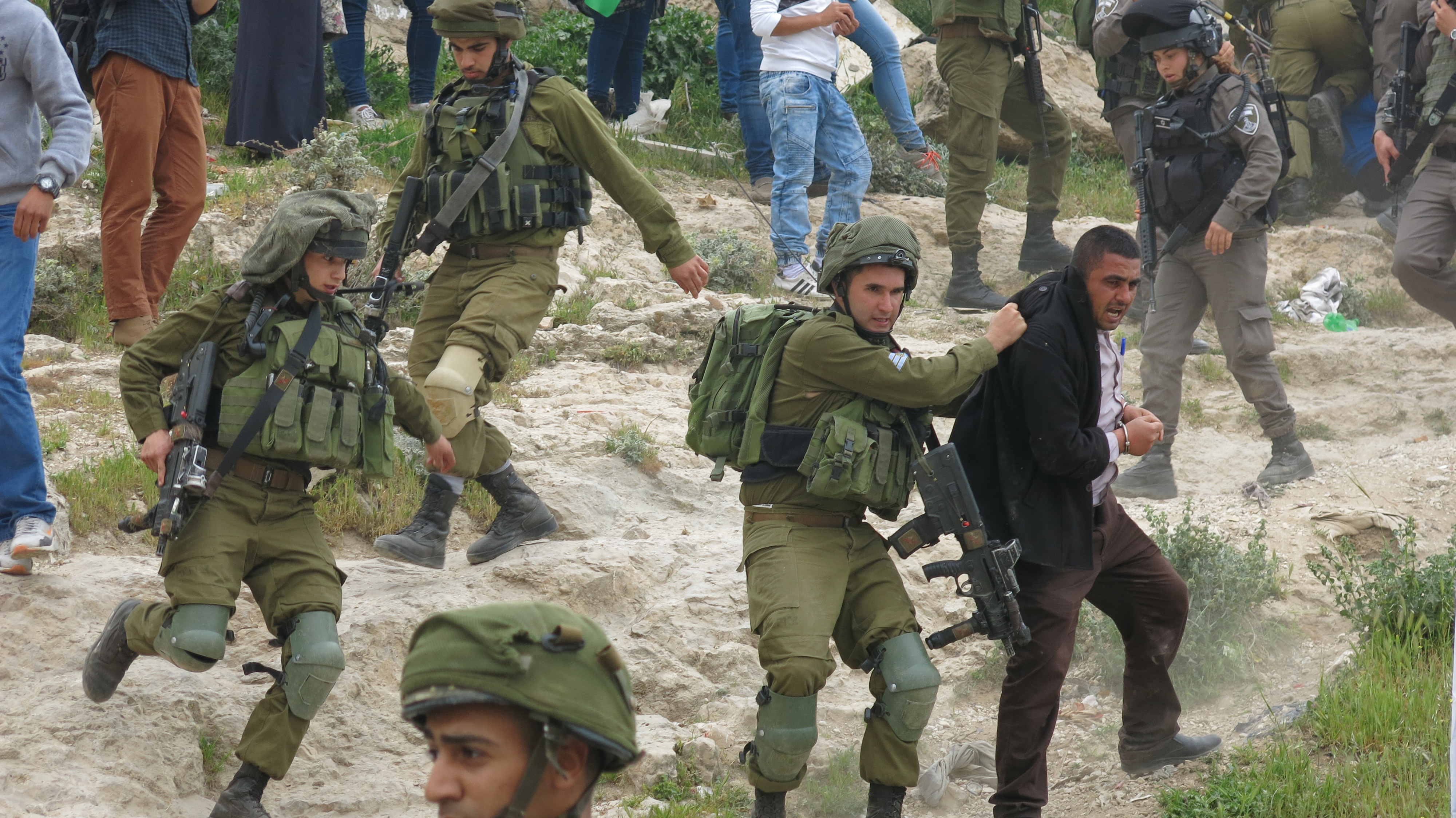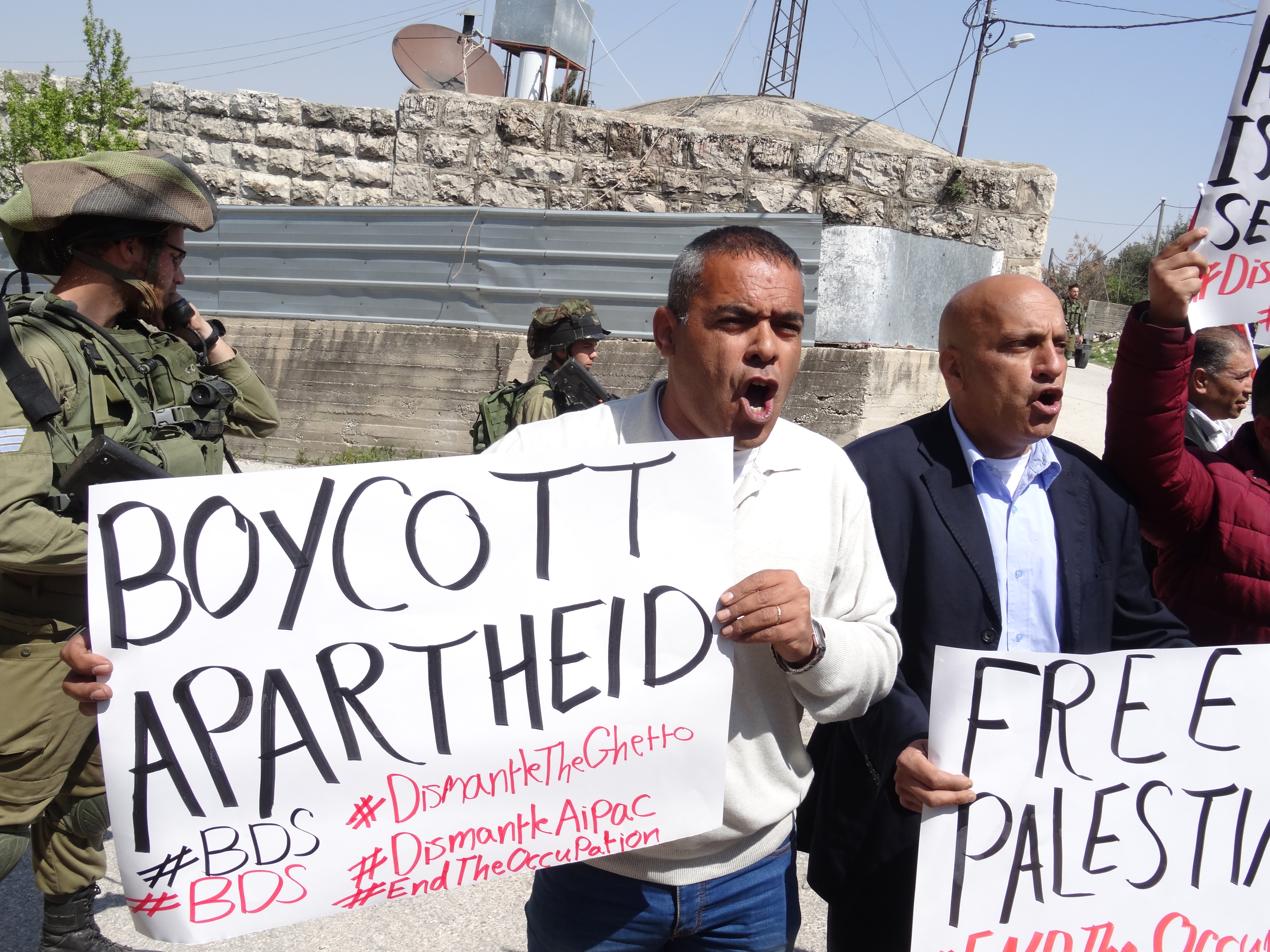Category: Hebron
-
Four Palestinians arrested during Land Day action in al-Khalil
31st March 2017 | International Solidarity Movement, al-Khalil team | Hebron, occupied Palestine On Thursday the 30th March, four prominent Palestinian activists were violently arrested by Israeli forces following an olive tree planting action marking the 41st Land Day demonstrations in al-Khalil. ISM activists joined demonstrators who had gathered near the Palestinian house now occupied…
-
Long-awaited maintenance works offer rare sight for Palestinians in al-Khalil
30th March 2017 | International Solidarity Movement, al-Khalil team | Hebron, occupied Palestine On Wednesday 29th March 2017 Israeli forces opened a blocked-off street for the first time in almost two decades to allow long-overdue sewage system works. The alley in occupied al-Khalil, open for less than a day, gave Palestinians the rare opportunity to see…
-
Dozens protest against AIPAC in Hebron sunshine
26th March 2017 | International Solidarity Movement, al-Khalil team | Hebron, occupied Palestine Dozens of Palestinians gathered in Tel Rumeida, al Khalil, to protest against the annual AIPAC (American Israel Public Affairs Committee) conference held in Washington, DC. Lacking the freedom of movement to protest in DC, the people of Hebron still want their voices to be…



